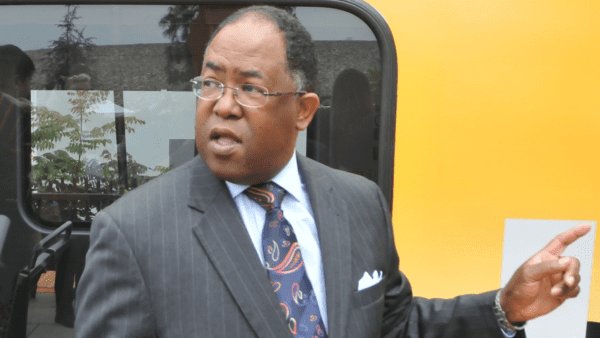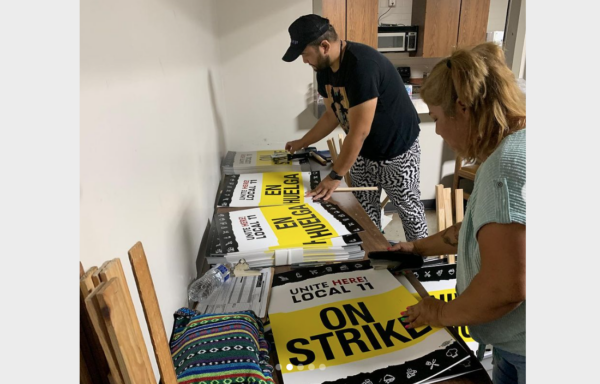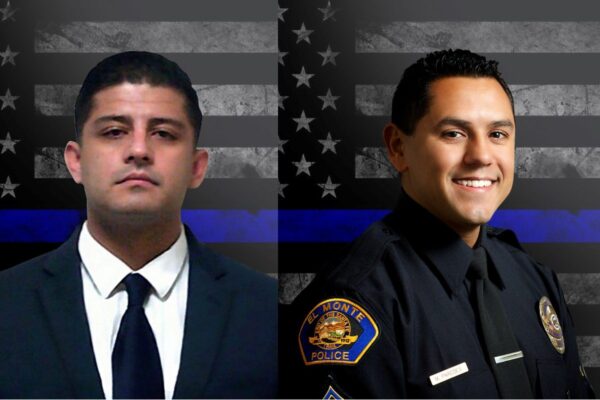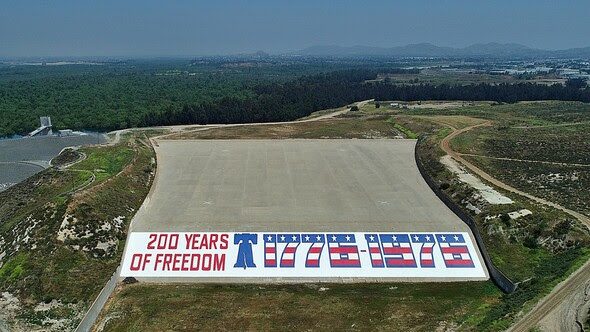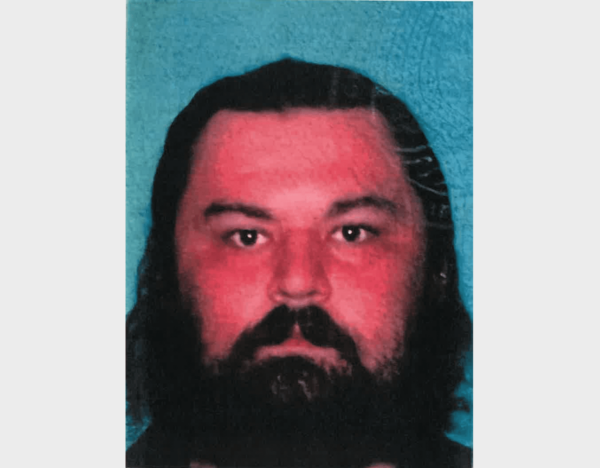By Fred Shuster
A judge Friday denied former City Councilman Mark Ridley-Thomas’ bid to have his convictions on federal bribery and conspiracy charges vacated after defense lawyers argued there was insufficient evidence to support the jury’s guilty verdicts.
Attorneys for Ridley-Thomas alleged during an hours-long hearing Monday that prosecutorial misconduct, misstatements of the law and other issues during the longtime Los Angeles politician’s trial ultimately deprived him of his rights.
The 68-year-old Ridley-Thomas is facing the prospect of years in prison after being convicted March 30 on single counts of conspiracy, bribery, honest services mail fraud and four counts of honest services wire fraud, stemming from his time serving on the county Board of Supervisors. Sentencing is scheduled for Aug. 21 in downtown Los Angeles.
In her 17-page ruling, U.S. District Judge Dale S. Fischer rejected defense arguments that there was no evidence of a quid pro quo arrangement between the politician and Marilyn Flynn, a former head of the USC School of Social Work, who pleaded guilty to a bribery charge.
Defense attorney Galia Z. Amram insisted there was no showing that Ridley-Thomas performed “an official act” while on the Board of Supervisors in favor of an expansion of a Telehealth contract with the county Department of Mental Health that prosecutors claim could have brought the social work school potentially millions of dollars in new revenue.
However, Fischer wrote as part of her justification for rejecting the defense motion for acquittal that “significant evidence” was presented by the government at trial through witnesses — primarily USC employees and the government’s case agent — regarding the contracts at issue and the defendant and Flynn’s “statements and actions, and USC’s perspective on providing certain benefits” to Ridley-Thomas’ son, Sebastian.
According to the minutes of the Board of Supervisors on July 18, 2018, Ridley-Thomas “voted to approve a renewed Telehealth contract to USC on the expanded terms requested by Flynn,” Fischer wrote.
Despite Amram’s insistence that there was no official act taken by the then-supervisor, the meeting’s minutes “show that defendant voted `aye’ on the Telehealth extension,” the judge stated. Additionally, the judge found “ample evidence” to support the jury’s finding that Flynn provided benefits to Ridley-Thomas in exchange for his vote.
As part of her denial of Ridley-Thomas’ motion for new trial, the judge discussed the defense theory that FBI Special Agent Brian Adkins, the government’s chief case investigator, made false statements to the jury during three days on the stand touching on nearly every factual issue presented.
Fischer explained that a conviction can be reversed on the conditions that the prosecution knowingly presented false evidence or testimony at trial and there is a reasonable likelihood that the false evidence or testimony could have affected the judgment of the jury.
The judge determined there was no evidence that Adkins intended to mislead the jury. She also found that in the instance where the agent testified incorrectly that he had personally reviewed all 400,000 documents produced by the government, the “incorrect (or false) testimony was both brought out on cross-examination and was subject to a curative instruction issued by the Court. The instruction explicitly pointed out the inconsistency in Adkins’s testimony and told the jury that they can consider the inconsistency” in evaluating the agent’s credibility.
“This was sufficient to remedy any prejudice that Defendant might have suffered absent the instruction,” the judge wrote, adding in a footnote that she was not convinced that Adkins’ incorrect testimony “would have had any meaningful impact on the result in any event, but, even if it would have, both cross-examination and the corrective instruction certainly eliminated any prejudice.”
As for two other purported false statements, the court found that defense counsel asked questions “that virtually invited Adkins to provide his own interpretation of the evidence he had found” and “his views on the case were appropriately allowed in the context in which they were elicited.”
In summary, Fischer found there was “not sufficient cumulative error to call for a new trial.”
Ridley-Thomas’ representatives did not immediately respond to a request for comment.
The former city councilman was accused of steering county contracts toward the USC social work school in exchange for contributions to a community- focused nonprofit organization run by his son, Sebastian, a former state Assemblyman.
A juror who spoke after the verdicts were announced said the panel found “dishonesty” in Ridley-Thomas’ actions involving the transfer of $100,000 that traveled from his campaign fund to USC, then to the United Ways of California, and finally to Sebastian’s organization.
Defense attorneys argued there was no bribery. The money was channeled from the father to his son’s organization in such a way to avoid the appearance of “nepotism,” Ridley-Thomas’ attorneys argued in court documents, and there was no benefit to the USC dean as a result.
Jurors, who reached their verdicts on their fifth day of deliberations in Los Angeles federal court, acquitted the Southland political giant of a dozen fraud counts.
Attorneys for Ridley-Thomas are appealing the conviction.
Ridley-Thomas, of South Los Angeles, vehemently denied any wrongdoing. He did not testify in his own defense, but his attorneys argued throughout the trial that nothing he did amounted to a crime.
Federal prosecutors based their case on a long string of emails and letters to bolster fraud allegations. However, defense attorney Daralyn Durie countered that nothing Ridley-Thomas did was illegal, and a series of defense witnesses testified that the “paper trail” was not what it seemed.
Flynn, 84, of Los Feliz, pleaded guilty in September to one count of bribery and is scheduled to be sentenced on July 24.
Ridley-Thomas served on the Los Angeles City Council from 1991-2002, then served in the state Assembly and state Senate before he was elected to the powerful county Board of Supervisors in 2008, serving until 2020, when he returned to the City Council.
He was suspended from the City Council following the October 2021 federal indictment that also named Flynn as co-defendant. After the guilty verdicts, Heather Hutt was appointed as the new councilwoman from District 10.

